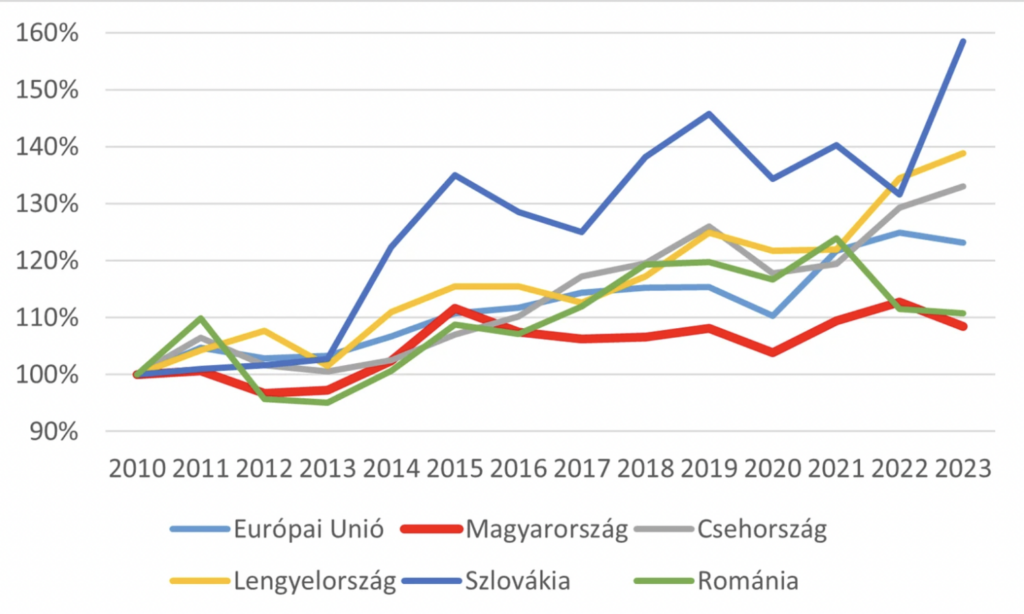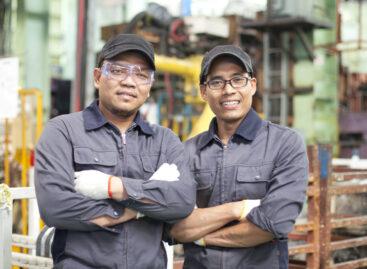The productivity of the workforce in the manufacturing industry in Hungary is close to stagnation
One of the central elements of the Hungarian economic development strategy is the development of Hungarian industry, for which a competitive, i.e. productive workforce is essential. Labor productivity measures how much each employee produces on average, i.e. how much an employed person contributes to GDP on average. In Hungary, labor productivity has shown very low growth in the manufacturing industry since 2010.
According to recent Eurostat data, the productivity of workers in the manufacturing industry in Hungary was 8% higher than in 2010. This lag is particularly unfavorable in an international comparison, as a significantly greater increase in productivity was observed in other countries. In Central and Eastern Europe, productivity increased by 11% in Romania, in the Czech Republic by 33%, in Poland by 39%, and in Slovakia by 58%, which means that Hungarian growth lagged behind that of all regional competitors. In the EU as a whole, productivity increased by 23%, i.e. 15% more than the Hungarian value. These trends shed a different light on the government’s criticisms of the European Union’s productivity. Hungary drags down the average productivity of the European Union, so instead of criticizing them, we should first approach them.
Labor productivity in manufacturing (2010=100%)[1]

Source: Eurostat
Our country’s competitiveness in the labor productivity of industry has decreased, which may make it more difficult to attract large industrial investments in the future, or at least the attractiveness of the domestic workforce. In order to avoid this, it may be extremely important to start vocational training courses and to support company training courses that increase the productivity of the domestic workforce, and thus at the same time the economic growth prospects of our country.
Related news
KSH: in December, the gross average salary was 789,200 forints, which was 8.5 percent higher than a year earlier
🎧 Hallgasd a cikket: Lejátszás Szünet Folytatás Leállítás Nyelv: Auto…
Read more >The Market Career Building Internship Program, which started a year ago, is now in its third year
🎧 Hallgasd a cikket: Lejátszás Szünet Folytatás Leállítás Nyelv: Auto…
Read more >Related news
MOHU: 5,200 return points are in operation, but 47 larger settlements still do not have RE points – public “enema” machines may be introduced
🎧 Hallgasd a cikket: Lejátszás Szünet Folytatás Leállítás Nyelv: Auto…
Read more >GDP growth in OECD member countries slowed to 0.3 percent in the last quarter of last year
🎧 Hallgasd a cikket: Lejátszás Szünet Folytatás Leállítás Nyelv: Auto…
Read more >









